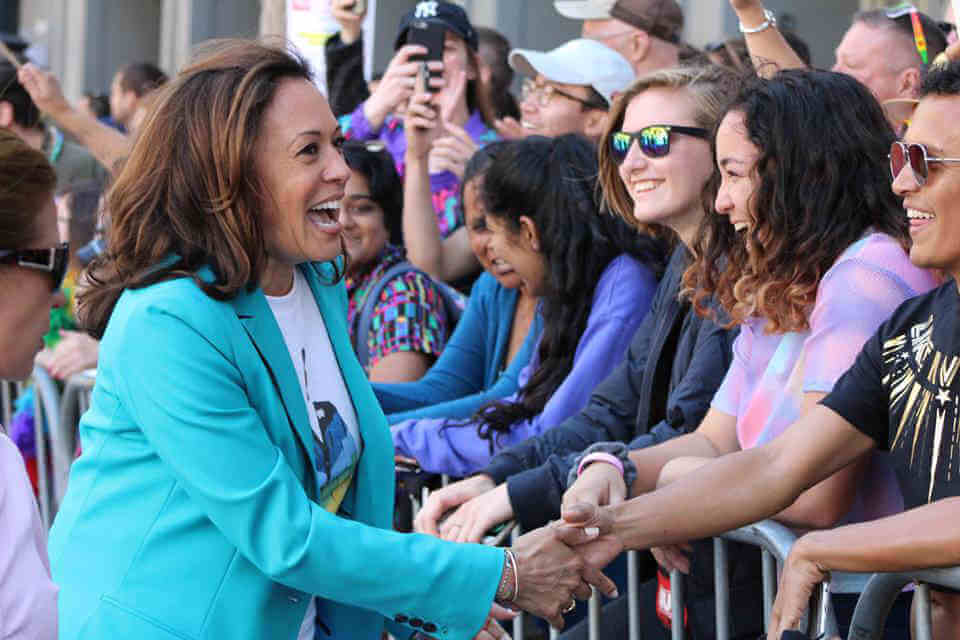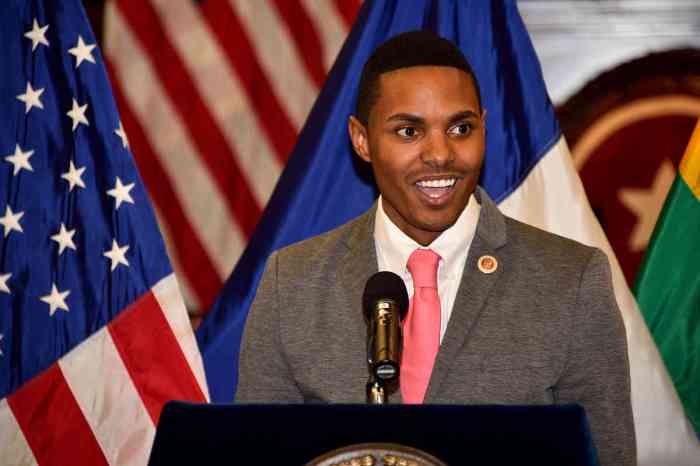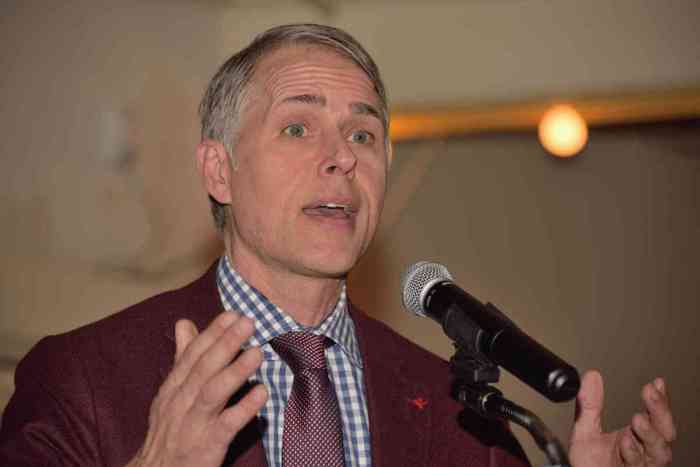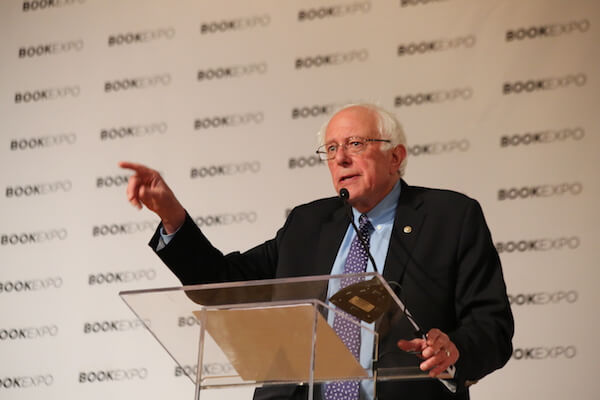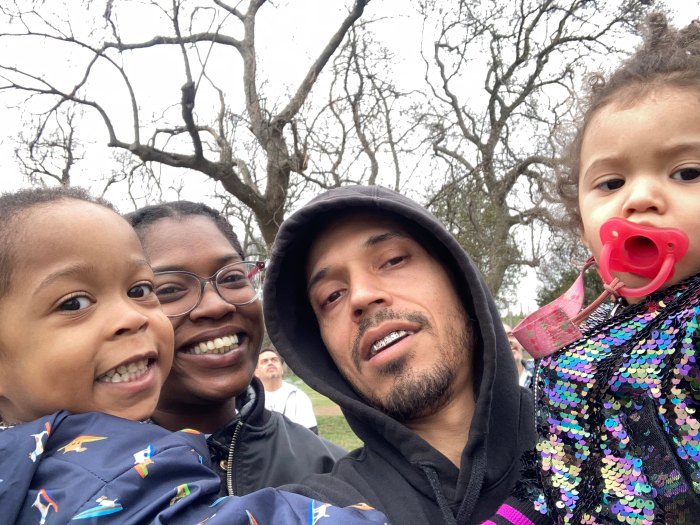Out gay South Bend Mayor Pete Buttigieg and Senators Elizabeth Warren of Massachusetts and Kamala Harris of California rolled out new LGBTQ plans hours before participating in an October 10 CNN town hall dedicated to queer issues.
All three candidates proposed similar plans to tackle discrimination against LGBTQ folks and restore protections unraveled by the Trump administration. And while the trio reiterated long-sought goals — such as passing the comprehensive nondiscrimination measure known as the Equality Act — some policy positions were unique to just one or two of the candidates.
Among the long list of similarities, all three candidates vowed to end President Donald Trump’s ban on transgender military service, ensure gender-affirming healthcare, allow Americans to identify their gender with an X denoting a non-binary status on their passport or other federal identification, end conversion therapy, prohibit discrimination against foster children and prospective parents, and address the horrific deadly violence targeting transgender women of color.
The three 2020 hopefuls also called for the training of law enforcement officers to minimize the risk of violence against marginalized folks like LGBTQ people of color.
Yet, differences were also evident. Buttigieg and Warren outlined proposals to wipe out the ban on gay and bisexual men donating blood — Harris did not mention that in her platform — and Buttigieg was the only candidate to call for “targeted approaches” in addressing health disparities for lesbian and bisexual women.
But Harris, notably, said she would open a new office dedicated to queer issues under a “Chief Advocate for LGBTQ+ Affairs in the White House.”
Despite numerous pages of LGBTQ policy, none of the candidates outright endorsed the decriminalization of sex work. Warren was the lone candidate of the three to mention the issue in her new plan, saying that she is “open to decriminalizing sex work” and that “sex workers, like all workers, deserve autonomy and are particularly vulnerable to physical and financial abuse and hardship.”
Many Democratic candidates have expressed a willingness to at least examine the decriminalization of sex work. Senator Cory Booker of New Jersey told Buzzfeed “sex work should be decriminalized,” while Vermont Senator Bernie Sanders’ campaign told Vice News in September that “Bernie believes that decriminalization is something that should be considered. Other countries have done this and it has shown to make the lives of sex workers safer.”

Congressmember Tulsi Gabbard of Hawaii said to Buzzfeed in March that sex work “should not be a crime,” and Harris, when asked by the Root whether she supports decriminalization, said, “I do. I think that we have to understand, though, that it is not as simple as that. There’s an ecosystem around that, that involves crimes that harm people.”
Former Vice President Joe Biden has been glaringly quiet on the issue and has refused to answer inquiries from reporters about his position.
Amid a spike in hate crimes since Donald Trump became president that has disproportionately targeted LGBTQ and Jewish Americans, Buttigieg and Harris invoked the Matthew Shepard and James Byrd, Jr., Hate Crimes Prevention Act: Buttigieg said he would “vigorously enforce” it and Harris said she would close loopholes in the law that currently do not require state and local law enforcement to track and report bias-related violence.
In the healthcare realm, there are consistencies regarding some specific LGBTQ issues and variation on others. Buttigieg explicitly said he would seek to ban genital surgeries on intersex infants and children, Warren said she would “ensure that intersex and transgender children have a say in their healthcare,” but Harris’ plan did not mention intersex folks.
All three candidates perpetuated the oft-used phrase “access to healthcare,” which has drawn criticism from those who argue that access means very little if people cannot afford the care. Unlike Sanders, none of the three candidates have come out with single-payer plans, but they are riding the coattails of popular healthcare terminology by branding their approaches as some variation of “Medicare for All”: Buttigieg has pitched a “Medicare For All Who Want It” opt-in plan, Harris’ Medicare for All plan would include a role for private insurers and employer-based plans, and Warren’s Medicare for All healthcare page does not specify whether she would eliminate deductibles, co-pays, and premiums.
Buttigieg said he would ramp up funding in finding a cure for HIV, decriminalize HIV transmission, and re-establish the White House Office of National AIDS Policy. Harris’ plan was lighter on HIV/ AIDS, saying her healthcare plan would ensure those who need PrEP can get an insurance plan that covers that medication as well as drugs necessary for HIV-positive folks. Warren and Harris joined Buttigieg in vowing to decriminalize the transmission of HIV. Also like Buttigieg, Warren said she would increase funding for HIV/ AIDS programs that have been slashed under the current administration.
Harris said she intends to “take action to reduce the price of PrEP,” Warren said PrEP should be publicly manufactured in an effort to lower the cost, and Buttigieg said he would “ensure access to PrEP for everyone who needs it.”
While only three candidates released fresh LGBTQ policies on October 10, other candidates have also released LGBTQ platforms and many of those topics were, in part, discussed during the first LGBTQ presidential forum in Iowa last month. These policies will likely continue to be clarified and expanded as the race heats up.


